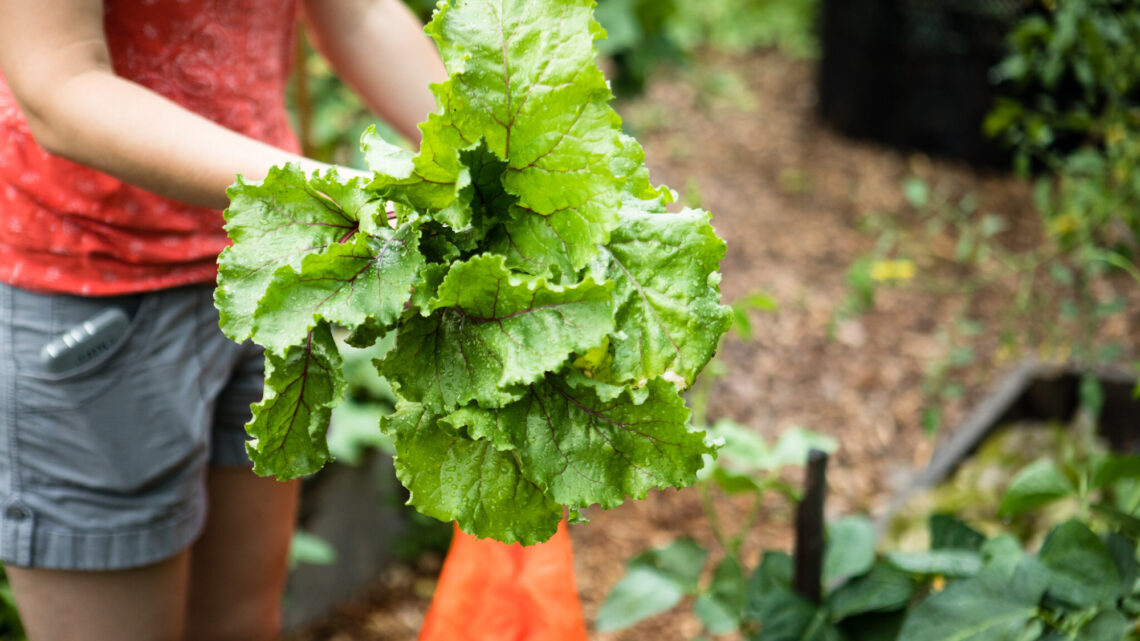Local and Plant-Rich School Food

Offering local and plant-rich food in school cafeterias can reduce a school’s environmental impact, improve the health and academic performance of students, and provide educational opportunities.
Food production accounts for a quarter of global greenhouse gas emissions. Choosing local food can cut down on food waste in the cafeteria, cut down on emissions required to transport the food to school, and support local businesses. Transportation emissions however, play a small role. If a school really wants to decrease the cafeteria’s environmental impact it should offer meals rich in plants because plant production releases a lot less greenhouse gasses than meat production and uses less water.
Bringing in local and plant-based food through school gardens also benefits education. Schools with garden programs see an increase in fruit and vegetable consumption and academic performance in science and math.
Connecting to Issue Investigation
Investigations focused on reducing a school’s environmental impact can lead to a solution involving local food (from a farm or school garden) or incorporating more plant-rich food in the school cafeteria. Investigations showing a need to increase outdoor learning and student engagement with the outdoors can support installation of a school garden or partnership with a local farm.
For those working towards green school awards, this action can advance environmental and sustainability education by providing daily opportunities to talk about the environmental impact of our food and improve the health and wellness of students and staff by offering more access to fruit and vegetables.
Facilitating Student Action
Students should continue to have opportunities to share ideas and opinions throughout the process of identifying, planning, and implementing action. Listed here are just a few ways students can stay engaged while working on this solution—but there are many more! The complexity of each activity/task can be adjusted for each grade level.
Create - creating edible school gardens can involve students of all ages and abilities. Using age appropriate tools and resources students can survey locations, test the soil, determine the light conditions, and choose the right plants. Students can also research maintenance plans and recruit help—before any garden is installed there should be a multi-year maintenance plan in place.
Educate - students can share the results of their investigations that led to choosing local and/or plant-rich foods. Students can educate parents, school administrators, and school cafeteria staff on the environmental and academic benefits of changing the menu. Depending on the age of students, this can take many forms from pamphlets, letters, skits, signs, and posters.
Advocate - students can advocate to the school board or administrators for using local food from farms or the school garden, offering more plant-rich foods and supporting cafeteria menu changes with time and funds.
Monitor - students can establish a pre and post-survey that analyzes changes to the cafeteria menu. After changes are made, students can continue monitoring to ensure the benefits are maintained and opportunities for improvement are recognized.
Share and Celebrate - students can share their work with the school community by giving tours of the garden and/or cafeteria, giving presentations, creating displays, or writing and delivering morning announcements. Students can also write articles, press releases or invite reporters from the school paper and the local newspaper.
Local and Plant-Rich School Food Resources
The Edible Schoolyard Project is a wealth of information for edible gardens. The organization offers trainings and the website includes many lesson plans that can be filtered by grade and subject.
Eat What you Grow! from a collection of partners to support school garden food safety in Chicago Public Schools. This guide is useful for any school wanting to learn how to safely use school-grown food in the cafeteria.
The United States Department of Agriculture supports a Farm to School Program. The website offers resources on how to start a program and fact sheets to use and share with others while you work to gain support.
The School Garden Network of Slow Food USA provides resources to help you start and continue a school garden in addition to free curriculum materials to embed garden lessons into curriculum.
Offering Meatless Mondays is a great way to encourage plant-rich school food. The Meatless Mondays campaign offers case studies from public schools, teacher lessons and resources, and campaign resources.
Each state in the Mid-Atlantic region has a farm to school program. Click on your state to learn more: Delaware, Maryland, New York, Pennsylvania, Virginia, Washington, D.C., West Virginia.
